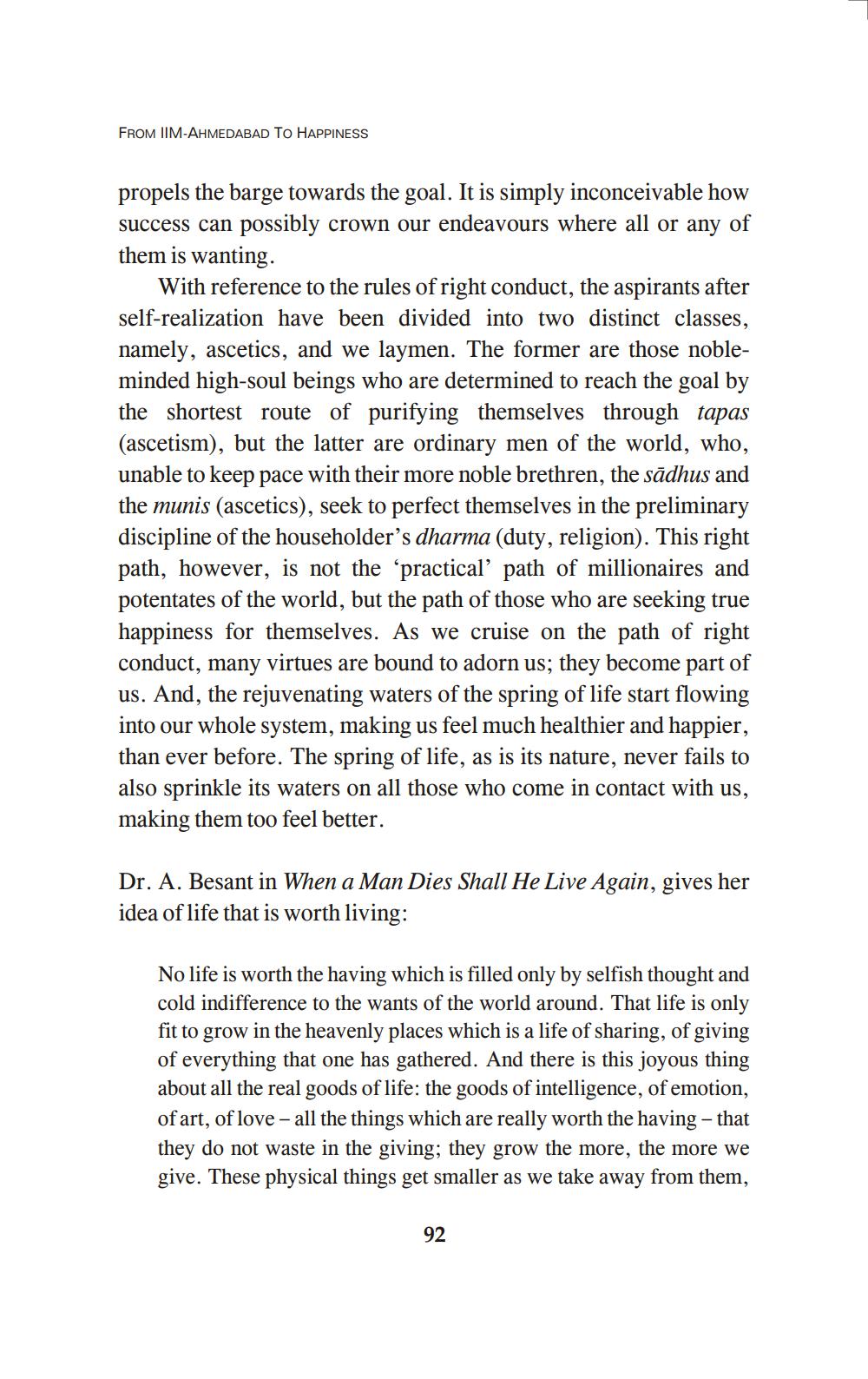________________
FROM IIM-AHMEDABAD TO HAPPINESS
propels the barge towards the goal. It is simply inconceivable how success can possibly crown our endeavours where all or any of them is wanting.
With reference to the rules of right conduct, the aspirants after self-realization have been divided into two distinct classes, namely, ascetics, and we laymen. The former are those nobleminded high-soul beings who are determined to reach the goal by the shortest route of purifying themselves through tapas (ascetism), but the latter are ordinary men of the world, who, unable to keep pace with their more noble brethren, the sādhus and the munis (ascetics), seek to perfect themselves in the preliminary discipline of the householder's dharma (duty, religion). This right path, however, is not the 'practical path of millionaires and potentates of the world, but the path of those who are seeking true happiness for themselves. As we cruise on the path of right conduct, many virtues are bound to adorn us; they become part of is. And, the rejuvenating waters of the spring of life start flowing into our whole system, making us feel much healthier and happier, than ever before. The spring of life, as is its nature, never fails to also sprinkle its waters on all those who come in contact with us, making them too feel better.
Dr. A. Besant in When a Man Dies Shall He Live Again, gives her idea of life that is worth living:
No life is worth the having which is filled only by selfish thought and cold indifference to the wants of the world around. That life is only fit to grow in the heavenly places which is a life of sharing, of giving of everything that one has gathered. And there is this joyous thing about all the real goods of life: the goods of intelligence, of emotion, of art, of love - all the things which are really worth the having - that they do not waste in the giving; they grow the more, the more we give. These physical things get smaller as we take away from them,
92




